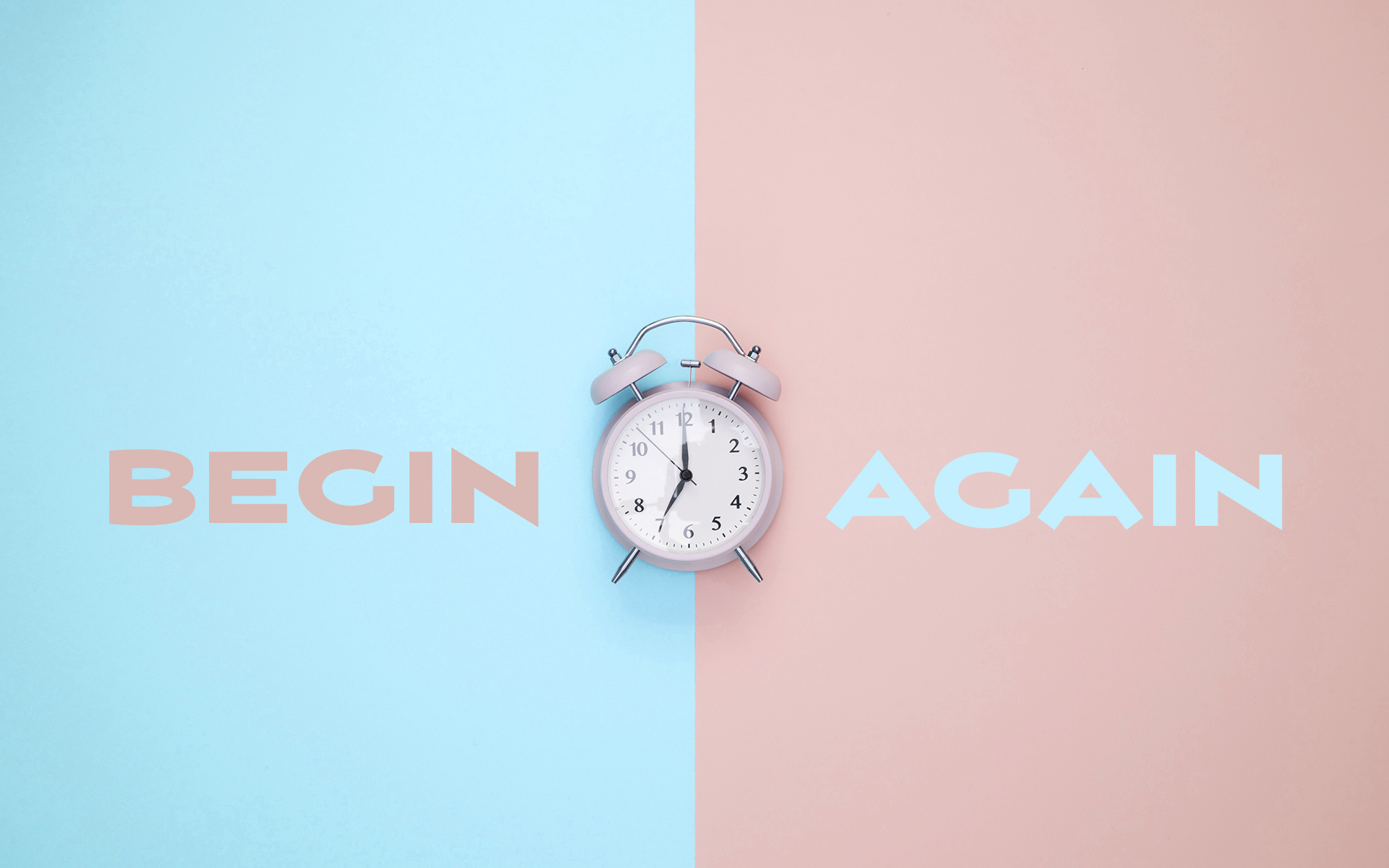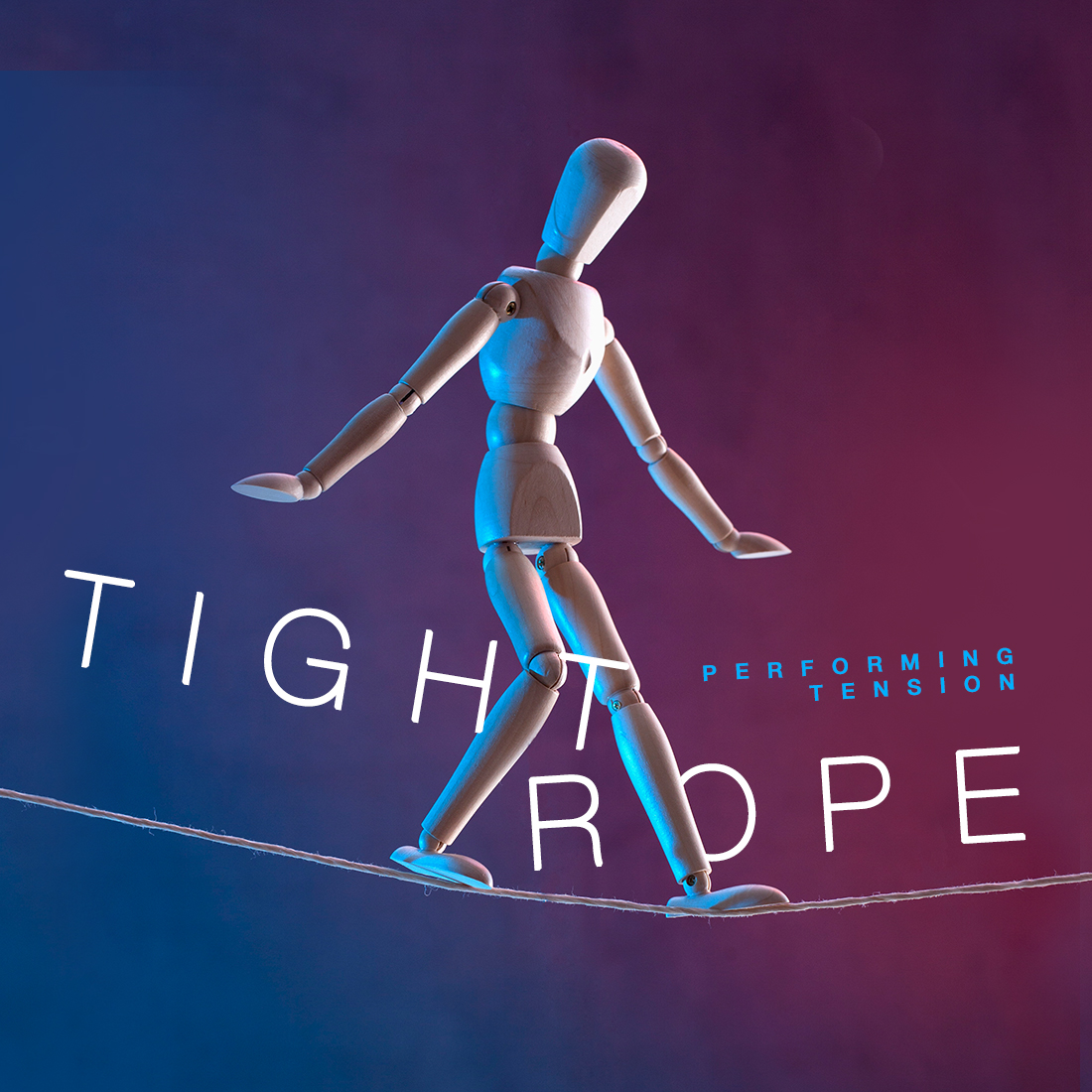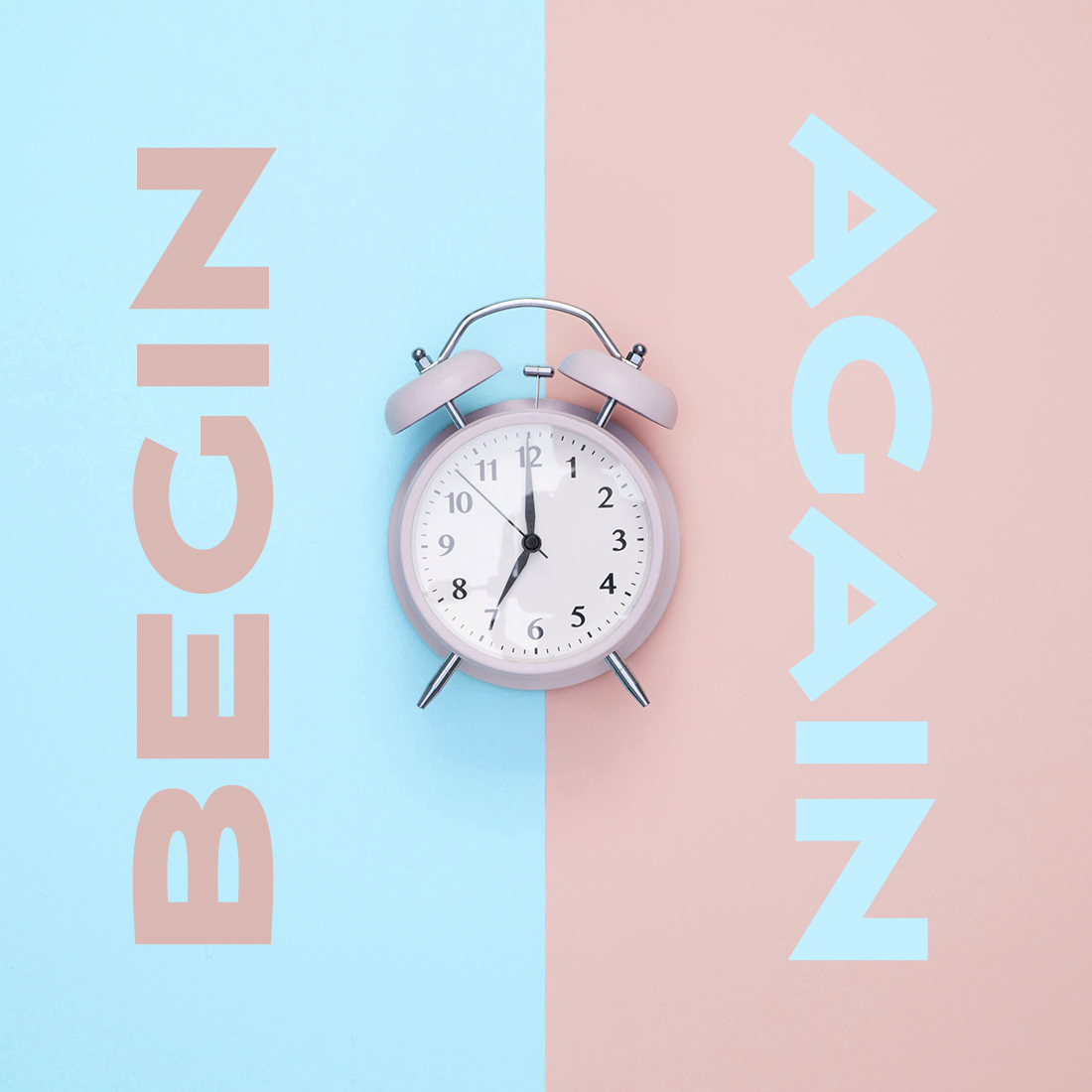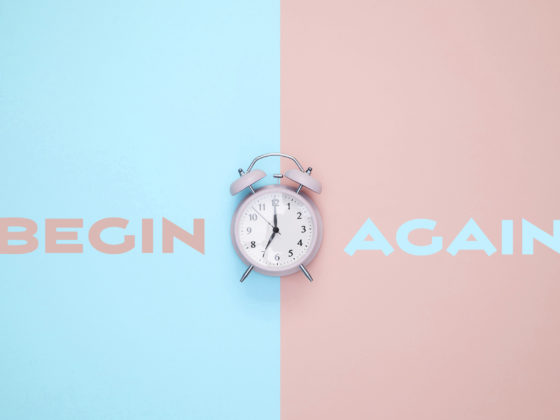NEIL M. PAIK
I. Planet Earth Isn’t Blue and There’s Nothing I Can Do
Scavenger’s Diary
The earliest memory I have of my mother is at the beach, back when the oceans were still blue.
Her wading me into the warmth of the Pacific, me running away — afraid the waves would catch my tiny, two-year-old feet and never let go.
Beautiful boy, she’d say smiling, as her delicate fingers ran through my hair and stopped at the scar on my forehead. Don’t be afraid of the world. It was made for you.
I’d give anything to feel those waves now.

That was a few months before Jonah showed up dead on the shores of Los Angeles. Jonah was a 400-ton blue whale, named after the biblical prophet who had a kinship with big fish and was tasked by God to deliver news of impending destruction. It was a fitting namesake. Day after day, fish big and small washed up dead on every major shore around the world. After hundreds of years of abuse, the oceans had become toxic. Beaches were closed off, ocean-front properties lost their value, and a haze of green stench arose from every major coast.
The Great Droughts had arrived. Farmers became criminals in record numbers as the crops that fed their families dried. Economies crumbled, and violence erupted over access to the reservoirs and rivers that remained. People were desperate. National governments attempted to regulate and recycle their resources, but nothing could restore water levels to a sustainable level. Those who could afford it showered in fresh water every day, while others lived in barren deserts and perished in unprecedented numbers.
Baby, we’ll find our way back to that beach one day, my mom would say like she was sure of it. That blind optimism is what I miss most about her.
In a desperate attempt to resolve the widespread humanitarian crisis, the United Nations agreed to temporarily suspend all national borders, thereby initiating the Great Migrations to water-rich communities.
As you can imagine, not everybody was happy about the decision. For the first few months, the violence got worse. Opening the borders didn’t change the minds of people who still thought within them. Sectarian groups formed, espousing crazy nationalism and striking out against anybody who tried to “steal” their water.
The UN called an emergency meeting and passed the Global Policing Initiative, which birthed a law enforcement agency designed to combat water-related violence on an international scale. Nobody thought this little experiment would work, until it did. The violence stopped. Most of it anyway. The UN took over major media outlets and promoted national humanism — a belief that all people should be proud citizens of one, singular human nation, and willingly share water with fellow citizens. Protests against this new structure were met with the Global Police’s deft hand. People started whispering about their gestapo-style tactics.
Guppy (noun)
Definition 1: Derogatory term for an officer who combats water-related crimes internationally, as commissioned by the Global Policing Initiative (G.P.I.) of the 22nd Century.
Around that time, Mom started telling me to shut off the news holograms; something about guppy news really rubbed her the wrong way.
I was still in school when her episodes began.
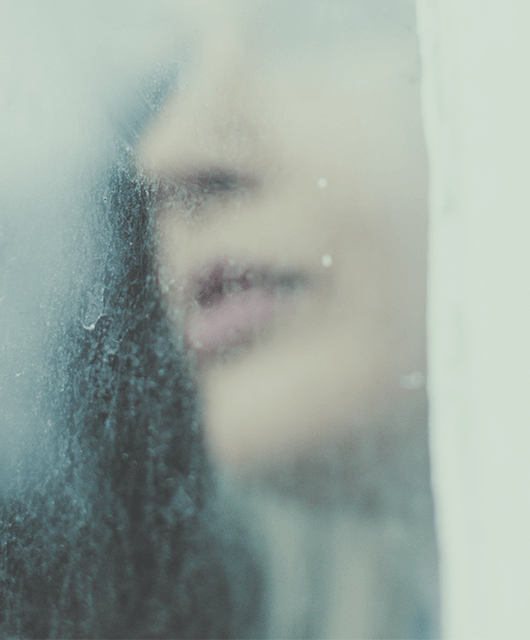
At first, they seemed like simple moments of confusion. A misplaced spoon, a forgotten appointment. The doctors said she was too young, but early-onset Alzheimer’s was a possibility. Then the blackouts started. She would forget long hours of the day, sleepwalk at night, and complain of incessant headaches.
I started working a job after Mom lost hers. A new tech lab was collecting urine from sewage and needed workers to extract the water content (remember when I said people were desperate). That’s where I was when I got the news.
While ankle deep in the piss of a hundred strangers, a couple guppies marched in and dropped the bomb: Hey kid, your mother had an aneurysm.
Shock took over. My synapses didn’t fire quick enough to ask why they were giving me the news instead of local cops or an EMT.

We didn’t have a funeral. My mother — ever the altruist — chose to be an organ donor. It’ll save you the cost of putting me in a box, she’d say. Even in death, she was thinking about me.
The doctor at Bellevue was oddly thrilled. He said young organs like hers were in high demand and could extend the lives of ailing patients by decades. I said goodbye in the hospital morgue.
That was five years ago.
In that time, the oceans have gone from green to black, the shores from hazy to noxious, the Earth’s population is a fraction of what it used to be, and every brick wall in every major city is tagged with anti-guppy graffiti. And rightfully so, in this Scav’s opinion.
Scav (noun)
Definition: Short for Scavenger; typically used to refer to those who illegally smuggle water. Though intended to be derogatory, it has been reclaimed as a term of pride amongst the community.
I run with a group of Scavs in the New York underground. We’re based mostly in the Bronx, but there’s a few of us stragglers in Brooklyn too stubborn to give the city up to the new money pricks buying up abandoned properties that used to belong to families that passed on.
Twice a week, we raid the watering facilities of every high rise, hotel, company HQ, and fancy-schmancy apartment in Manhattan. You’ll find us running water out of every coked out executive’s private bathroom on Wall Street and from every sweater-knitting grandmother’s denture glass in the Upper West Side.
If you can justify having clean water to yourself, we can justify taking it from you.
We sell half the loot on the black market and give the other half to people who need it. Mostly families and friends — for those of us who have the luxury of families and friends.
Guppies have tried to cut off our raids, infiltrate our organization, and smoke us out. But the network is air tight. We keep it small, we keep it moving. And until very recently, not a single one of us has been caught.
The summer cracked down hard this August, and people got real desperate. Maybe it was the excess dehydration draining our synapses or just old-fashioned hubris, but we decided to hit the big three at once: The Fed, the Stock Exchange, and the UN. It would be a statement to the world that the rich can’t use their guppy gestapo to scare people and hoard clean water for themselves. As long as a Scav was alive and breathing, those at the top would be living in paranoia, always watching their backs.
As you might imagine, guppies were all over these buildings, but it wasn’t a problem for us to plant an informant within their ranks. Assembling a police force sourced from every province in the world was gonna produce a few bad eggs. And bad eggs always get along with other bad eggs because we know that no matter what we do, the world will always put us in the same place: the trash.
Everything was set to go. And then it happened. With a deft hand, the guppies beat us to every punch. They knew we were coming: when, where, and how. It was a slaughter. We lost half our crew, most of them killed on the spot. Even for guppies, “shoot to kill” was a bold directive.
I was on the UN job. Grazed in the leg by a guppy bullet, I managed to limp away into a vent shaft. I’d crawled through these vents before, but doing it while bleeding out was a different story. I could feel myself passing out and became overwhelmed by the thought that I would die here and my corpse would be stuck behind these walls forever without anybody knowing. A monument of our failure to topple the system, completely hidden from sight and left to rot.
I woke up in a cold sweat to the barrel of a Beretta glaring me down. On the other side of the trigger was the last face I expected to see.

II. We Can Be Heroes (Just for One Day)
Orphan’s Diary
An orphan’s likelihood of adoption falls significantly after the age of five.
I was 11 years past my prime, and that was perfectly fine. After a childhood of being herded from cage to cage, a girl learns to keep expectations low.
But anomalies exist.
They found me in an orphanage out of a Charles Dickens wet dream in what used to be called “Mexico.” I had apparently expressed a big enough penchant for violence to attract the attention of a wealthy, sterile couple from Europe who desperately wanted to help “make a respectable woman” out of a misguided tramp.

In they marched one morning with their porcelain skin and pristine clothes. She looked like a trophy wife who acquired an enviable collection of Tiffany diamonds as apology gifts for his numerous indiscretions. He looked like a banker who owned an enviable collection of Brioni suits and always found a way to blame her for said indiscretions. Maybe I was being harsh, but making bitter extrapolations about people who weren’t alone had become a special talent for those of us who were. Especially if those people were as rich as these two — visiting a juvenile petting zoo to acquire a human accessory that would fill whatever void all their money couldn’t.
I stepped out of the orphanage with the clothes on my back and a Polaroid photo of my mother — the only things I could call mine in 16 years. I could feel a thousand little eyes on my back, leering through the grey doors thinking why me and not them. Eyes filled with envy and judgement; eyes that used to be mine. I didn’t look back.
My new parents claimed they had a special surprise and asked me to wear a blindfold. I assumed most of the buttoned-down one percent were into kinky shit, but doing it in public seemed a little brazen. I felt my way into a car, and buckled up. It’s only when we started moving that I realized the vehicle’s incessant noise wasn’t coming from an engine but a rotor — that we weren’t driving but flying. And that Mr. Brioni and Mrs. Tiffany weren’t a couple at all.
We landed in a fairy tale. A circular, makeshift city miles above the Earth’s surface, floating like an island surrounded by clouds bigger than I’d ever seen. If paradise existed, it took notes from this place: Atlas City.

They escorted me through the giant, pearly doors of an ivory building that made the Taj Mahal look like a dollhouse. Inside, I met the others.
They were like me, in a sense. Tramps, whores, junkies, orphans, homeless vets, convicts — a who’s who of the world’s scum pulled out of cages, scraped off the streets, and brought through heaven’s gate. All with one defining characteristic in common: we were alone.
No family, no friends. Completely untethered, completely forgettable.
Tiffany told us we were the inaugural class of officers recruited by way of the Violence Prevention Act, a measure passed by the United Nations 20 years in the future.
Oh yeah, Tiffany and Brioni — they were from the future. Surprise.
Now given our résumés, we “recruits” weren’t gonna easily buy this crock from a couple snooty upper crusters. Same time, none of us was really dying to go back to where we came from. So we decided to give the Kool-Aid a sip.
Brioni tells us that in less than a generation, there would be no national borders, the world would be ruled by one government, and people would be fighting and dying over water. That last part was the only thing that sounded believable.
In 20 years, a series of events would spark humanity’s third and final world war. We were brought in to prevent those events from occurring.
The wormhole was created by Tiffany herself, who turned out not to be a lonely housewife but a world-class physicist. Go figure. In their desperation to seek out viable water sources, the UN of the future tasked her with finding a way to access the only place they knew water existed: the past. After a series of failed trials, Tiffany discovered that no amount of matter was small enough to effectively travel through time. Only substances without mass could traverse a wormhole. Water couldn’t travel. People couldn’t travel. But ideas could.
Dr. Shields’ Rules for Traversing the Wormhole
- Only a mind can travel in time, not a body
- A mind traveling through the wormhole must have a receptacle (read: body) willing to accept it on the other end
- Only a receptacle whose DNA makeup is suited to the mind can receive it properly
- While traversing the wormhole, if you die in the future, you also die in the past (and vice versa) because a body cannot function without its mind (and vice versa)
If she could travel to the past and warn humanity of its forthcoming reckoning — maybe just maybe — she could change the future. She sent her mind back into her young body — still a Ph.D. student at MIT — and began her crusade.
The authorities of our time laughed her off as a conspiracy theorist, academics ridiculed her for wanting to make a name for herself, and the media figured she was a mental case. The world didn’t want to hear about its impending doom, even from an educated woman. Especially from an educated woman.
Enter Brioni: decorated commander of the Global Police of the future, sent back in time to his younger body to take a less diplomatic approach. If nobody in the past would believe in the Great Droughts, he would prevent them from happening himself.
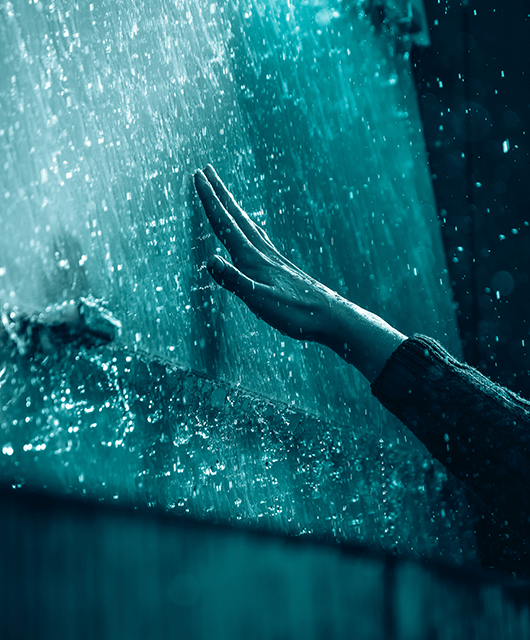
Atlas City was created as a reservoir to preserve the world’s water. Built completely off the grid under Brioni’s direction, it would remain undiscovered by the public and report only to the UN of the future. As I was about to learn, nobody who stepped foot on Atlas City or learned about its existence would ever be allowed to leave.
Paradise or not, I had been herded into another cage.
There were two kinds of people on Atlas:
The Engineers, who ran the City’s absorption program. They stealthily collected moisture from the Earth’s surface and evaporated it into the artificial clouds surrounding the city, thereby preserving water future use.
I was to join the other group — The Observers. We would be traveling into the future to observe water-related crimes, return to the present and have our memories of those crimes extracted to a memory bank that would be made available to the Global Police of the future, who would in turn prevent those crimes from happening. We would be heroes, they told us.
If you’re feeling lost, imagine how I felt.
Now I don’t know what kind of parties you go to or what kind of drugs you do there, but I can confidently tell you that time travel is the biggest trip you will ever experience. Of course, like with any drug, improper use could lead to side effects.
Dr. Shields’ Rules for Observers
- Do not interact with anybody in the future in any meaningful way (this includes talking, touching, or even breathing too hard)
- Do not try to look up anybody you knew in the past
- Do not spend more than the allotted 24 hours away from Atlas City
- Violation of Rules 1-3 will result in instant termination
Termination didn’t mean you were fired. If you broke the rules, your body would be unplugged from the system while your mind was in the wormhole, and your consciousness would drift into an eternal oblivion. A fate more excruciating than death, as Brioni put it.
My first expedition removed any doubt about what Tiffany and Brioni were telling us. The process only took a few minutes. We entered the pods, they put us to sleep and initiated the transfer. We woke up in the same pod and the same body, but 20 years later.

Most Observers were disappointed to see the wrinkles and fat in their older faces. I was oddly grateful. Most of my life, I never thought I’d live long enough to see 25, let alone middle age.
The Atlas City of the future was bigger. More engineers, more clouds. There were hundreds of pods now, holding the older versions of Observers that were being recruited in the past.
My class had aged. Some had even gotten married. Derrell — a junkie when I met him — had sobered up these last two decades and now had a newborn with Keiko — a suicidal vet when I met her — who now couldn’t stop smiling at the baby boy in her arms.
They put us in clothes appropriate for the era and told us to blend in when we reached the surface. Even though we were technically working with the Global Police, very few of them knew about Atlas City. Only the people at the top knew about the existence of a wormhole, time travel, and the memory bank. That’s how the UN wanted to keep it: top secret. Even in the future, we Observers technically didn’t exist.
This is how the expeditions worked:
First, we observed the aftermath of a heist through future news reports to pinpoint its time and location.
My first sting was in D.C. A cartel of water smugglers was trying to rip off what used to be the Supreme Court of the United States. The building was all but abandoned now since the Global Police adopted a new judicial system that didn’t involve trials. But as a memento of American history, some philanthropists paid to preserve the building — which meant its old plumbing system was undisturbed and probably retained some water.
Second, we visit the site at the precise time of the raid and observe the specifics on who was there, how it was carried out — any details that could help the G.P.’s stop the heist before it happens and apprehend the Scavs responsible.
When finished, we’d travel back through the wormhole to our own time, wake up in our young bodies again, and download our memories into the bank. Within a matter of minutes, the entire expedition would disappear from our minds like a dream that fades away into the night.
Dr. Shields’ Rules Regarding the Memory Bank
- Nobody is to have access to the Memory Bank but Atlas Command
- Do not ask about memories ascertained during Observation trips
- Do not discuss Observation trips with other Observers
- Any remnants of memories from Observation trips should be discussed immediately with your supervising officer so they may be properly extracted
- Violation of rules 1-4 will result in instant termination
Brioni told us to think about our role as insurance against the butterfly effect.
On this end of the wormhole, we can travel both ways — observe in the future and report to the past. If those D.C. Scavs sense police presence at the Supreme Court because of our tip, what’s to say the cartel won’t change plans and hit the White House instead?
For every change that happens in a timeline’s past, a new web of possibilities is spun for the future. The only way to know about all of them is to have a pathway back and forth and enough Observers to report widely in different places and different times.

The rest of our lives would be spent calling Atlas City home, running expeditions in an endless cycle. Wash, rinse, repeat. We’d have no memory of our work. Nobody outside of these city walls would know us, now or ever. We were a group of outcasts tasked with saving a world that didn’t care we existed.
I tried not to think about it too much; there were plenty of distractions in the City. Every Friday, money was deposited into our accounts, and although I couldn’t drop down into the world and buy a new Porsche, it felt good to have something to my name. The City had restaurants, casinos, even movie theaters — everything to keep us occupied between expeditions. It took me a minute to realize the money they were paying us ended up back in the City’s pockets.
The recruits started to bond. Some even partnered up. Derell, a junkie with the shakes, started dating Keiko, an ex-marine who had a serious case of PTSD. I started to wonder if I’d ever meet anybody on Atlas.
I finished my 50th expedition through the wormhole when news of the droughts started to hit the internet. Brioni told us it was time to go into overdrive. We began Observing day and night, bringing on new recruits to increase our reach, and even began combat training to take on Scavs ourselves in the event we had the ability to prevent a water crime from happening on the spot. They taught us how to fire all sorts of guns and kept us in top shape in the present, so when we woke up in our older bodies, we’d still be fit enough to win a fight.
I got my chance pretty quickly. A gang out of New York was hitting three major buildings in Manhattan. Brioni told us the financial repercussions of this heist would be one of the major catalysts for the third world war.
I was stationed at the UN. G.P.’s were there in full force and took care of most of the Scavs, but Brioni’s directive was shoot to kill. He wanted us to take care of any stragglers to prevent as many butterfly effects as we could. The firefight lasted ten minutes. These Scavs were a ragtag crew; they didn’t stand a chance.
We were ready to close up shop when I noticed a straggler bleeding from the leg, trying to escape through the vents. I followed him up the shaft, but when I reached him, he was passed out cold. Piece of cake. Or it would have been until a couple low-ranking G.P.’s started patrolling the hall. I had to be careful. They were too far down the food chain to know that I was an Observer. If I was captured, they’d ask too many questions. I’d never make it back to Atlas before my 24 hours ended, and the party would be over.
Through the vent, I could see them interrogating Derell and Keiko — who were also undercover. I wanted to help, but my involvement would only complicate things so I stayed quiet. A decision I regretted instantly.
They try to cuff Keiko, but Derell objects and without hesitation, they put a bullet in his forehead. Keiko screams, but before she can run to him, they put a hole in her, too. The world stops for a second, and I hate myself for wishing I was back in my pod in Atlas, back in the past — so this whole sting could feel like a bad dream.
The Scav starts waking up and I ram my gun in his face and tell him not to make a sound. I think of Derell and Keiko’s newborn; a baby that’s going to grow up an orphan like me because of this Scav’s stupid raid. Nothing he said was going to stop me from blowing his brains into the ceiling.
Mom?
Except maybe that.
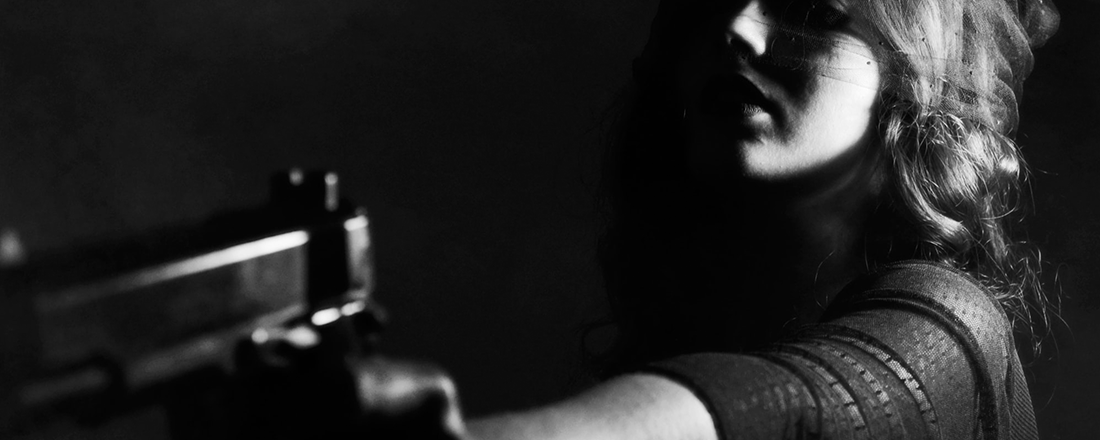
III. If You Should Fall into My Arms and Tremble Like a Flower, Let’s Dance
Scavenger’s Diary
Her Beretta is tickling the back of my neck the entire way home. She tells me to stop calling her mom and scowls at me like a stranger. I list off her favorite foods, bring up memories only she I share: my piss-cleaning job, our first apartment in Brooklyn, that day at the beach. She doesn’t believe me, and I start thinking maybe I lost too much blood in that vent and this is all a bad hallucination.
Her eyes are cold, but they fill me with a strange warmth I can’t fully articulate. I convince her to come to our house, where I can prove that I am her son.
When we enter, she doesn’t recognize the place. Not even her room, her old dresses — everything I left in its place these last five years, untouched. She sees the photos on the mirror, and that’s when her mood changes. She can’t deny it’s her face in those images. It’s all there: my 10th birthday, our trip to the water restoration museum, the fading Polaroid of grandma. She focuses on that last one. It’s enough of a distraction for me to quickly snatch her gun. She doesn’t protest. The old photograph has her mesmerized.
They told me you were dead, I tell her. A brain aneurysm five years ago.
She’s unsettled and tells me she needs to sit, then checks the metallic watch on her wrist and says there’s not much time before they terminate her. She has to return to Atlas City.
I’m not sure where that is or what any of this means and though I can tell she’s exasperated and confused and sad all at once, I can’t help but smile at the sight of her.
Where did you get this photo, she asks.
From grandma, I tell her. She always said it was your favorite of her.
She starts pacing and tells me that’s impossible. That her mother was killed when she was an infant and that the Polaroid photo is all she knew of her.
Would you like to see her? I ask, and her face brightens with astonishment.
It dims again when she realizes where we’re going. Grandmother’s gravestone is a simple piece of rock etched with her name, next to thousands of the same rocks on an ordinary wall in Bushwick. Lack of water for sprinkling the grass and an excess of dead bodies deemed traditional cemeteries useless after the Great Droughts.
She went peacefully, I tell her. She touches the dates, and I can see her making the calculations in her head.
If this is true, I was 30 when she died. But my body has been in Atlas City since I was 16. This is impossible.

She continues muttering to herself as she paces back and forth and then punches the stone wall repeatedly. Her watch blares an alarm, and she tells me she has 5 hours to return to her pod before she’s terminated.
That means killed, she clarifies.
I offer to go with her, but she says they’d kill us both. She’s already broken several rules by talking to me; if she’s to survive, she has to return now and beg for mercy.
I make her a deal: I’ll tell her everything she wants to know about her life if she tells me everything about Atlas City and where she’s been these last five years. She’s not convinced, and I tell her we can keep doing this dance until her time runs out because I’m not leaving her alone unless she decides to use that Beretta.
Something about my determination gets to her. I suppose it should, since she’s the one who taught me to be this stubborn.
When she tells me she came from the past through a wormhole in a city in the clouds, that she’s still really a teenager under that skin, that she was raised an orphan, and that her job is to prevent Scavs from stealing the Earth’s water supply, the only thing that rubs me the wrong way is the last part.
She tells me she was recruited by the UN of my time to prevent water crimes by spying on Scavs and providing the details of their heists and whereabouts to guppies. She tells me this, and I realize she is the reason half of my crew is dead.
So why would the guppies shoot your friends, I ask her. She tells me it was a consequence of their being covert operatives. That even the guppies don’t know about half the stuff she’s telling me. Seeing her try to justify it all as the logic runs in circles off the slipperiest of slopes makes me realize I may actually be talking to a teenager.
I tell her that the UN and guppies are the reason people are without water; that they only serve the rich while the rest of us die. She doesn’t believe me, so I take her through the city. The real city. I show her how the majority lives, and I can see her shock at the emaciated faces surrounding trash can fires on every block, the “No Water Migrants Allowed” signs on restaurant doors, and the rib-caged children who line 42nd Street busking for coins below holographic billboards that espouse the power of the Global Police and the nobility of our One Nation. This is the future your guppy friends have created, I tell her. Wrinkles form on her forehead. The same wrinkles I happily caused as a child and regretted causing when she was gone. I can see she’s calculating her options:
- Turn me in
- Stay here and get terminated when the clock runs out
- Go back to Atlas City and ask for forgiveness, travel back to the past, forget she has a son, and let the memory of this night fade away like a bad dream
What’s your name, she asks.
Kai.
I’m—
Sofia, we say in the same breath.
The melody of a young busker’s flute dances its way into the air between us, and she asks me through tearful eyes: Was I ever happy?
Before I can answer, she breaks into a sob and I hold her gently. Her scorching tears bleed into my shoulders, and I say the only thing that comes to mind:
Don’t be afraid of the world. It was made for you.
We hold each other in the cold night and slowly dance to the lilting tune under inauspicious stars, dreaming of a future together that could only exist in the past.

IV. Rebel Rebel, Your Face is a Mess
Guppy (noun)
Definition 2 (archaic): Colloquial term for Rainbowfish, one of the pre-Drought world’s most widely distributed tropical fish. Considered model organisms in ecology, evolution, and behavioral studies for their use in research when human experimentation would be unethical.
Orphan’s Diary
Everything they told me was a lie.
The sun is rising and in less than an hour, I will be terminated. Though if I go back now, they’ll extract my memory, learn I’ve broken the rules, and terminate me anyway. If I’m going out, it’s going to be on my own terms.
I don’t know if I’m going to want to know the answers I’m looking for, but I do know that if those answers exist, they can only be in one place: the memory bank.
Kai has an armory in his house. Our house, I guess. We load up on guns, knives, grenades. Every weapon we can physically carry.
Atlas City is a fortress; nobody goes in or out without special access.
We sneak past the guards at Bellevue Hospital; technically, we’re both professionals at doing this type of thing. Like mother like son, I suppose.
This is where I saw you last, he tells me.
We hold the morgue physician, Dr. Gupta, at gunpoint and ask him to personally go through the records. He tells us all of Sofia’s organs went to one person, Dr. Regina Shields. You know her better by now as Tiffany. He gives us a hologram copy of my file.
While begging us to spare his life for the sake of his children, Dr. Gupta takes us to the New Arrivals section. I find Derell and Keiko. Cold and pale, but together. I snatch Derell’s Access ID and give it to Kai. He takes Keiko’s, too, telling me it might be a good idea to share it with some bad eggs. I give my colleagues a final goodbye, and we leave the crying doctor handcuffed inside the room of death with his newfound appreciation for life.
We scan into the entry port with our Access IDs. As we ascend and Atlas comes into view, Kai’s disdain for everything the city stands for doesn’t hide his awe at its grandeur. I suppose he never saw many clouds in his lifetime, let alone clouds this massive. It’s like watching a child go to Disneyland; maybe this is one of those moments when a mother is supposed to feel fuzzy inside.
Tiffany sees me first and feigns relief that I’m not hurt. She’s cradling Keiko and Derell’s baby in her arms, and the sight makes me shudder. Her smile fades when she sees Kai, guns drawn. We’re quickly surrounded by armed Observers, and she tells us she’s been expecting us.
Of course she has. Fucking time travel.
I look around the room and try to tell them that Derell and Keiko were killed by the Global Police. Brioni appears and says something about cracking eggs to make an omelet. It makes me nauseous, and for a second I wish I never left the orphanage.
I try to tell the other Observers about the people dying in the streets, about how Kai is my son and how I had a life outside of Atlas City that I don’t even remember—
Tiffany cuts me off. She says I’ve been fed Scav propaganda and am compromising everything they’ve built by bringing “one of them” here. That this is treason and the punishment will be my instant termination.
Before she can finish the thought, a bullet pierces through her chest, narrowly missing the baby. I guess she wasn’t expecting that part.
Global Police helicopters surround the buildings as Scavs and low-level Guppies storm the room. Kai’s bad eggs.
Bullets fly in every direction. Brioni’s trying to resuscitate Tiffany, but she’s long gone. I put my gun to his throat and make him stand.

Take me to the memory bank.
It’s a long, cylindrical chamber filled with binders of holographic memories. He tries to tell me that this is a mistake and I won’t find any answers here. I tell him to pull up my file.
Observers storm the room and point their guns my way, but curiosity about this sealed-off cache we’ve only heard stories about overwhelms all of us. And then the holograms begin to play.
Stretched upon the screens before us, I see every expedition I ever took — every sting, every trigger pulled, every Scav killed, every reset — memories stolen from a girl who got used to having bad dreams.
I shudder at the images and think of the children on 42nd Street. I think of Kai and how close he came to being a corpse in one of these holograms. Loot after loot compromised, murder after murder committed. One Global Police victory after another. And then it all becomes clear:
We were never trying to save the world’s water; we were the ones taking it away.

The Engineers sapped the moisture out of every major body of water and stored it in the clouds that surrounded this city. Toxic waste overwhelmed what remained of the oceans, and they became poisonous. Year after year, Atlas City sapped the world’s water and caused the Great Droughts. With the clouds at our disposal, we commanded when it would rain and where. We controlled populations, decimated crops, and divided communities. And when anybody tried to tap into our resources, we eliminated them.
God may have created the world in seven days, but over 20 years, we recreated it. Over and over again.
The owners of Atlas reshaped the world on their own terms, and we were their pawns. We didn’t leap forward in time to prevent a world war. The wormhole expeditions were meant to ensure that nobody would ever compromise Atlas. It wasn’t enough for them to own the present; they wanted to secure the future, too.
I play the hologram file from the morgue, which clearly states I died of a brain aneurysm five years ago and that my body was donated to Regina Shields.
Now the Observers’ guns are lowered as a thousand question marks arise around the room. I take the safety off.
Why me? Why us?
Brioni knows he can’t get out of this. He cracks his neck, clears his throat, and begins the soliloquy:
Let me remind you about some of our rules, since you’ve managed to break so many.
Dr. Shields’ Rules for Traversing the Wormhole.
Number one — only a mind can travel in time. In this case — yours at the age of 16.
Number two — a mind traveling through the wormhole must have a receptacle willing to accept it on the other end. In the past, it was the body you were born with; in the future, it’s the one you’re in now.
Number three — only a receptacle whose DNA makeup is suited to the mind can receive it. Now pay close attention to this one. A mind can only move through the wormhole into its own body, past or future.
You believe I first met you in an orphanage in Mexico two decades ago, when the truth is, I first met you in the morgue at Bellevue Hospital in New York five years ago. A brain aneurysm left your mind missing but your body completely intact — fairly young and healthy, apart from a few stitches up top. It made you a near perfect candidate.
My hands shake as my finger begins to squeeze the trigger.
The only issue we had to resolve was your past. Recruits into Atlas City are only effective when they don’t have ties to the world below. You had a son, you grew up with a loving mother.
Tears start forming and I fight to keep them back as I think of all the moments I stared at that Polaroid of my mother in one damp orphanage after another, wishing she would return one day to take me home.
We had to make some adjustments to that history.
He went back in time. He killed my mother. He made me an orphan. So he could recruit me when I was old enough and put me in his machine. Like he did with all of us. His near perfect candidates — people who fell into comas or died young with their bodies intact. Perfect vessels for time travel. Perfect pawns for Atlas City to conquer the world.
He tells me if I kill him, that all of this work will be for nothing. Without him and Tiffany at its command, the wormhole is useless.
The Observers seethe, each now curious to know their own backstories — the people they left behind, the people that were taken from them.
Pull up my current expedition file, I say. The UN raid populates as a hologram; Keiko and Derell fill the screens as I last saw them, through the vent shaft. Their ruthless butchering plays out to a captive audience of Observers — the only people in the world who cared about them.
I holster my gun and exit the room, leaving Brioni to the fate that his own hand-picked militia deems appropriate. God only knows what they do to him.
Outside, Kai is crouched by Tiffany, blood on his hands. I worry he’s been shot, then realize he’s holding Derell and Keiko’s baby. The bullet that killed Tiffany grazed its forehead; its face is a mess of blood and tears. It cries as Kai rips his sleeve and ties a makeshift bandage.
I think he’s yours, he tells me. I look at him, confused. He grabs my hand and puts it on his own forehead. A prominent scar. The realization dawns on me.
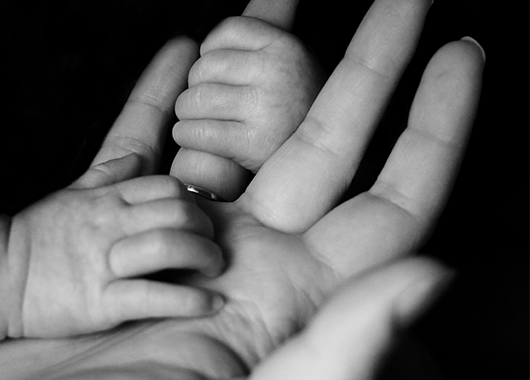
This baby is Kai.
Did you find the answers you were looking for?
I think so, I tell him as the dots slowly connect in my head.
I go back in time with this baby and no memory of the expeditions. I raise Kai as my own. When he’s a teenager, I die of a brain aneurysm. Tiffany inherits my body and hooks me into Atlas City. Brioni goes back in time, kills my mother, and makes me an orphan. Years later, he recruits me as an Observer. We end up here. The cycle repeats.
Or does it?
Rule #3 of Traversing Wormholes: Only a receptacle whose DNA makeup is suited to the mind can receive it.
That means technically, this baby can’t go back in time because his body doesn’t exist in the past. It would be impossible. Technically.
But anomalies exist.
Nobody expected a post-pubescent miscreant orphan to be adopted. Just like nobody expected a baby to be born in Atlas City. A baby whose parents’ DNA were still embedded in the wormhole.
If you’re feeling lost, imagine how I felt.
I lived for 16 years without following any rules before a dozen rules were forced on me, dictating every aspect of my life. But standing in front of me was a grown man — my son — whose very existence proved that the rules were bullshit.
Maybe it was time to start breaking them again. Maybe we had a chance to do this differently.
While traversing the wormhole, if you die in the future, you also die in the past.
That means Keiko and Derell are gone forever. But so are Tiffany and, by now, Brioni. If Atlas City is destroyed, maybe that closes one end of the wormhole. With Tiffany out of the picture in the past, the other end may never have been created.

Take Two: We destroy the city. I go back in time with this baby and no memory of the expeditions. I raise Kai as my own. When he’s a teenager, I die of a brain aneurysm. But in this new reality, there is no wormhole. No Atlas City. No Great Droughts. No Global Policing Initiative. No children dying on 42nd Street.
Overly optimistic? Probably. In my defense, I did spend a number of years with my head literally in the clouds.
On Kai’s orders, the Scavs line the facility with explosives.
You can stay here in this future, he tells me. Build a life for yourself. We can be together.
We both know that’s not an option. One mother and son’s happiness isn’t worth the world’s suffering.
I place the baby in what used to be Keiko’s pod as the other Observers strap into theirs.
Kai’s crew withdraws from the city.
My son embraces me one last time and thanks me for coming back into his life, for giving him a chance to say goodbye properly. As I enter my pod, he turns for one last look and says—
The answer is yes. You were happy because I was happy.
I fall into a deep sleep and begin to dream a fairy tale about an orphan and a scavenger who save humanity. The world outside bursts into a dance of flames.
V. Lazarus
When she awoke, her ears echoed with the screams of a baby.
He sat crying in the pod, a dribble of blood trickling down his pudgy forehead.
Something inside of her said the child was hers to care for; she picked him up and held him tightly to her chest. His cries calmed to a whimper.
The others awoke in their pods nearby, all equally confused as to where and when they were and why.
On a particularly sunny day years later, she took the child to a beach in the country where she spent her youth. The water of the Pacific felt warm as it pulled the rough sand between her toes. She fell upon her knees gently beside him as the seaweed wrapped around their ankles and bound them to the wet earth.
As a wave crashed, he ran away — afraid to let even a single drop of water touch his tiny feet.
Beautiful boy, she said, running her fingers through his delicate hair down to the scar on his forehead. Don’t be afraid of the world. It was made for you.
They embraced as the water receded from the shore.

